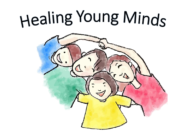— Autism Spectrum Condition/Disorder (ASD)
Our Services
What is ASD?
Autism Spectrum Condition/Disorder is a neurodevelopmental condition which means that it is a lifelong condition which starts in very early childhood but may not be recognised until much later. The word ‘spectrum’ means that the condition presents differently in each person, individuals on the spectrum show some but not all the characteristics of the condition, and show them in varying degrees.

ASD is characterised by difficulties with social communication and interactions as well as restricted and rigid behaviours and interests and sensory issues. This means that children/young people on the spectrum may struggle with things like chit-chat or small talk, understanding body language and other people’s intentions and behaviour, and expressing their feelings. They may need more time to process information which can cause problems in the classroom. They may have significant difficulty coping with change and with uncertainty. Sensory issues include over/under-sensitivity to thinks like sounds/lights/touch/certain textures/smells. These issues can interfere with attention/concentration and can trigger anxiety and subsequently meltdowns.
What difference will a diagnosis make?
Although ASD is not an ‘illness’ and therefore not ‘curable’, receiving a diagnosis can help your child understand themselves better and this may help alleviate any concerns about other possible explanations for their perceived ‘differences’. A diagnosis also helps parents, families, and education staff understand the child’s behaviour better. This means that unhelpful labels and misinterpretations can be avoided and the child can start getting the right help and support they need in order to reach their potential.

The assessment process may also help identify any other comorbidities which may be treatable. Research shows that around 70% of individual on the spectrum have a psychiatric comorbidity, the most common being ADHD and Anxiety Disorders.
If the assessment does not conclude a diagnosis of ASD, differential diagnoses will be explored and discussed and management options considered.
Principles of Management
- Understanding the child/young person’s strengths and difficulties in light of a diagnosis of ASD can go a long way in supporting them to achieve their potential and in reducing anxiety.
- Making adjustments to the child/young person’s environment at home and at school based on identified strengths and difficulties.
- Psychosocial and behavioural interventions should be tailored to the individual’s profile of strengths and difficulties and should take into account any co-morbidities (co-existing disorders).
- Treatment/management of any treatable coexisting problems/disorders such as sleep problems, ADHD, Anxiety Disorders etc.
ASD Assessment Pathway
In line with best practice guidance from the National Institute for Health and Care Excellence (NICE)
01.
Screening Questionnaires
Once you have contacted us to book your appointment screening questionnaires will be sent to your child’s home and school and you will be asked to bring the completed forms with you to the initial appointment.
02.
Screening appointment
Your initial appointment will be with the Consultant Child & Adolescent Psychiatrist. This will be with the child and parent(s) and will help determine whether an ASD assessment is warranted or not. If not, you will be advised of possible alternative explanations for your child’s identified difficulties and where/how you can get specialist help. This may be something that our clinic can help you with.
03.
Developmental History
Developmental History – An appointment will be made for parent(s) to meet with the Consultant Child & Adolescent Psychiatrist to gather a developmental history using a structured interview. You can choose to attend the clinic in person for this or to conduct it remotely via video.
04.
Observation of the Child/Young Person
This will be using the ADOS which is a standardised test carried out by a trained member of our team.
05.
Diagnostic Report
Diagnostic Report – This will be produced by the clinicians involved in the assessment and will detail the assessment process and its findings and list recommendations for management based on these findings.
06.
Feedback Appointment
This will be offered to the child/young person and parent(s) and will be with the Consultant Child & Adolescent Psychiatrist who will explain the findings in the report as well as the recommendations and answer any questions about the diagnosis and what happens next.
Please note:
Healing Young Minds is not a 24/7 service which means that we would not be able to manage mental health emergencies/crises or any conditions likely to require intensive treatment. Therefore, we do not accept referrals for deliberate self-harm and anorexia. For any of these difficulties please see your GP for a referral to NHS services. If you are unsure please contact us to discuss.
